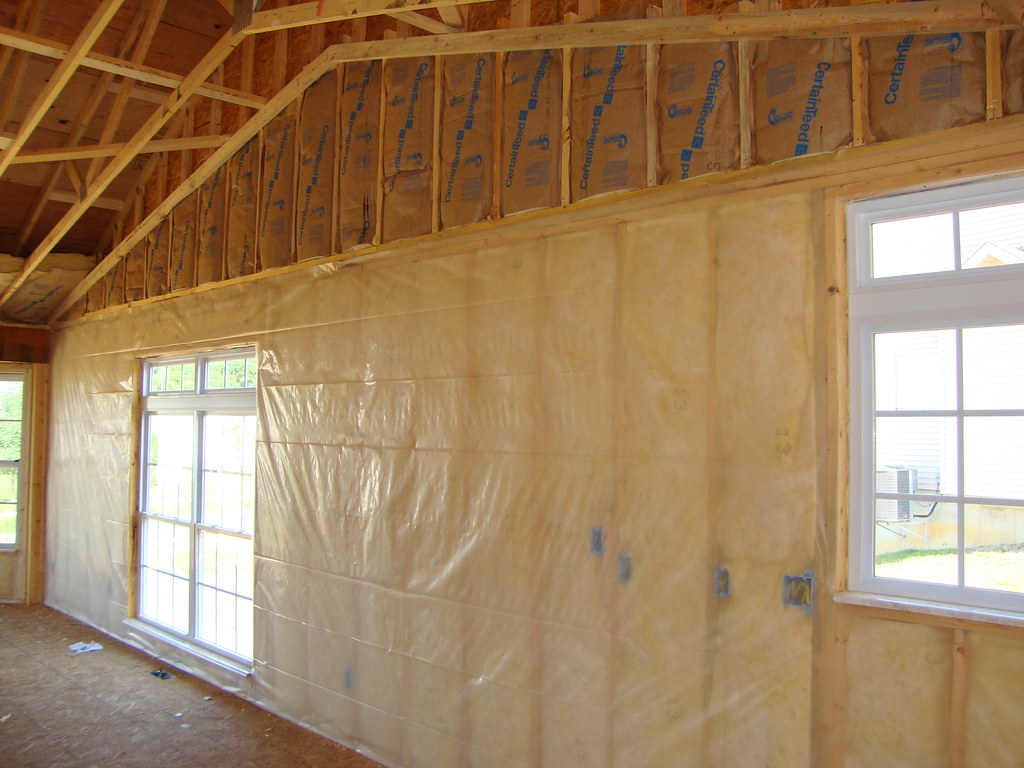If your home has a pitched roof then insulating it is an excellent investment. Depending on your needs you can choose between adding insulation at ceiling level or at rafter level.
If you opt to insulate your pitched roof at rafter level this is called a warm roof construction. There are many different types of insulation materials.
Insulation Types
There are many insulation options suitable for pitched roofs, both for new build and refurbishment projects. The type of insulation will depend on the roof structure and its specific needs. Insulation can prevent cold air from entering the house and warm air from escaping through the roof.
Effective roof insulation can save up to 20-25% on energy costs. It also helps to reduce carbon emissions from the building and makes your home a more comfortable place to live.
Rigid insulation is made from a variety of materials including mineral wool, rock and glass fibres, or polystyrene (including Isover Celotex GA4000 and Kingspan TF70). There are also foil insulation products such as Actis Hybris and Superfoil SF19+ that can be used for between and over-rafter insulation.
Insulation is available in both open and closed-cell varieties. The open-cell varieties are softer and are more suitable for indoor applications. Closed-cell insulation is rigid, and can be used for a wide range of roofing systems.
Spray Foam
Spray foam insulation is a unique insulation product that sprays as liquid and expands to fill spaces. Its ability to seal small gaps and cracks limits air movement within a home, which helps improve energy efficiency.
It is best suited for new homes or renovations and can be used in attics, wall cavities, crawlspaces, and other areas. It is also effective in reducing the amount of heat lost through a roof.
Different manufacturers use different blowing agents for their spray foam. For example, open cell spray foam uses water as the blowing agent while closed cell uses a petroleum-based substance.
The chemicals used in the manufacturing of methylene diphenyl diisocyanate (MDI), a key ingredient in MDI-based spray polyurethane, can create health issues for those who are exposed on a long-term basis. Because of this, it is important to have a professional install spray foam.
Polystyrene
Polystyrene is a common type of synthetic insulation that is available in both expanded (EPS) and extruded (XPS) foam. Both types are commonly known as Styrofoam.
Expanded EPS insulation is a good choice for wall and ceiling insulation in homes because it can be cut to fit between timber joists. It is also available in pre-made insulation panels that are easy to install. EPS insulation does not have very good acoustic properties on its own, but it can be used in conjunction with other rigid materials such as SIPs for effective soundproofing.
XPS insulation has a much higher R-value than EPS and can be used in areas that are exposed to water. It is also more resistant to fire than EPS.
Both EPS and XPS are considered safe by health and safety experts, but they should be handled with care and installed according to manufacturer instructions. It is a good idea to wear gloves, glasses and a mask when working with any type of insulation, especially when cutting it.
Polyurethane
Polyurethane (PU) foam is an insulator with a high strength-to-weight ratio and durability. It also offers good moisture and temperature resistance.
It is made by combining two types of materials, isocyanates and polyols. The isocyanate component has one or more isocyanate groups on each molecule and must be reacted with polyol components to produce polyurethane. Other ingredients such as blowing agents and processing aids can be included in the polyurethane formulation. The isocyanate and polyol components are combined in an exothermic reaction. The result is a flexible or rigid foam that can be molded to shape.
PU coatings are soft and do not require plasticizers like vinyl, which means they will keep their supple feel over time. They also have low odour and toxicity and are easy to decorate. PU resins are available in both water-based and oil-based formulas. The water-based products dry faster, are easier to clean and create fewer dioxins than the oil-based options.pitched roof insulation
